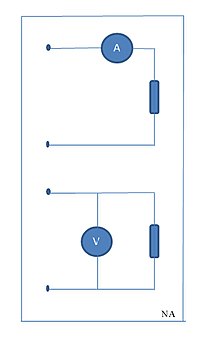Class of accuracy in electrical measurements

Imagine you're baking cookies with your mom and she asks you to measure out 1 cup of flour. You have two measuring cups - one that is marked very clearly with lines that show exactly where 1 cup is, and another that has lines that are a bit harder to see. The first measuring cup is like a measurement tool with high accuracy, meaning it can measure things very precisely. The second measuring cup is like a measurement tool with lower accuracy, meaning it's not as precise and might have a bit of error in the measurement.
In electrical measurements, we use tools called instruments to measure things like voltage, current, and resistance. Just like with measuring cups for baking, these instruments can have different levels of accuracy. The class of accuracy is a way of describing how precise an instrument is in its measurements.
There are different classes of accuracy for different types of electrical instruments. For example, an instrument that measures voltage might have a class of accuracy of 0.5%. This means that when the instrument measures a voltage, it might have an error of plus or minus 0.5% of the actual voltage. So if the actual voltage is 100 volts, the instrument might measure it as anywhere between 99.5 volts and 100.5 volts.
A higher class of accuracy means that the instrument is more precise and has less of a chance of making an error in its measurement. However, instruments with higher accuracy are often more expensive and may not be necessary for every situation.
So just like how you need to choose the right measuring cup for baking, you need to choose the right instrument with the right class of accuracy for the electrical measurements you're making.
In electrical measurements, we use tools called instruments to measure things like voltage, current, and resistance. Just like with measuring cups for baking, these instruments can have different levels of accuracy. The class of accuracy is a way of describing how precise an instrument is in its measurements.
There are different classes of accuracy for different types of electrical instruments. For example, an instrument that measures voltage might have a class of accuracy of 0.5%. This means that when the instrument measures a voltage, it might have an error of plus or minus 0.5% of the actual voltage. So if the actual voltage is 100 volts, the instrument might measure it as anywhere between 99.5 volts and 100.5 volts.
A higher class of accuracy means that the instrument is more precise and has less of a chance of making an error in its measurement. However, instruments with higher accuracy are often more expensive and may not be necessary for every situation.
So just like how you need to choose the right measuring cup for baking, you need to choose the right instrument with the right class of accuracy for the electrical measurements you're making.
